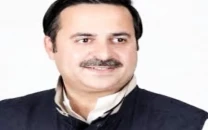Govt mulls privatisation of 10 Discos
Explores full privatisation, management transfer as solutions to sector’s woes

Pakistan’s caretaker government is actively exploring solutions to address the woes of its struggling power sector. Two options are currently under serious consideration: the full privatisation (sale) of all 10 state-owned Power Distribution Companies (Discos) or the transfer of complete management control to private entities.
Caretaker Minister for Energy, Muhammad Ali, highlighted the urgency of these decisions, especially in light of the precarious state of the power sector. In addition to the Discos, the fate of four power plants hangs in the balance, with the likelihood of being handed over under long-term concession agreements. Such agreements would entrust private parties with management control for a duration of 20 to 25 years, allowing them to invest and enhance the system.
The government is contemplating three key options, including returning control of the power distribution companies to their respective provincial governments, full privatisation, or entrusting management to private investors via long-term agreements. These options are currently under discussion with the Privatisation Commission, and the final decision will be presented to the Cabinet for approval.
The energy minister acknowledged ongoing efforts to improve the management of the Discos, including board restructuring. However, he emphasised the need for immediate action rather than waiting for these improvements to materialise.
Furthermore, Ali addressed concerns regarding tariffs post-privatisation, suggesting that they might no longer adhere to a uniform structure. Instead, tariffs could vary from one company to another, potentially favouring more efficient entities. He cited the example of K-Electric (KE), which was privatised years ago but still receives government subsidies to maintain uniform tariffs. Privatising state-run companies could relieve the government of this financial burden, reducing the need for subsidies and stemming losses.
Regarding outstanding receivables, the senior joint secretary of the energy ministry confirmed that the amounts have been reconciled but are awaiting disbursement from government departments.
The minister also revealed that board members of these entities are currently under evaluation, with a focus on essential skill sets and balanced boards.
In response to questions about public listings, Ali clarified that this approach is being pursued for profitable companies. However, he acknowledged the unique challenges faced by state-run firms.
Ali emphasised the importance of ensuring financial accountability by stating that individuals tend to be more diligent when money is directly at stake. He noted the transient nature of government officials and public servants, who often do not have the same long-term commitment as private sector stakeholders. In contrast, private sector owners, board members, and management teams are known for their continuity, which fosters an environment conducive to addressing financial shortfalls and increasing profitability.
He outlined the potential benefits of privatisation, including stimulating economic growth, boosting Gross domestic product (GDP), creating jobs, and generating tax revenue. To ensure the sustainability of the power sector, he stressed the need for this model to be implemented, allowing it to thrive.
In terms of addressing the circular debt issue within the gas and power sectors, Ali proposed short-term interventions to reduce costs. Currently, power consumers are charged between Rs20 to Rs22 per unit as capacity payments, a figure that could be lowered. Extending the loan tenure and increasing local power generation sources, such as Thar-based coal, are part of the government’s strategy. Additionally, upgrades to the North-South transmission line are in progress, with a target completion timeframe of two to three months.
The Central Power Purchasing Agency (CPPA) has been tasked with creating a bulk energy market within three to six months, facilitating the trading of electricity units equal to or exceeding one megawatt. On the subject of government-Independent Power Producer (IPP) agreements, Ali explained that international investments are intertwined with these contracts, necessitating their preservation.
Furthermore, Ali addressed the financial challenges within the gas sector, revealing a principal circular debt of Rs2.1 trillion, coupled with a late payment surcharge ranging from Rs6 to Rs7 billion. Annual sector losses amount to Rs350 billion, with the gas sector’s financial woes rapidly surpassing those of the power sector. He also highlighted the imbalance of buying liquefied natural gas (LNG) at $13 and selling it domestically at $2.5.
Published in The Express Tribune, September 26th, 2023.
Like Business on Facebook, follow @TribuneBiz on Twitter to stay informed and join in the conversation.



















COMMENTS
Comments are moderated and generally will be posted if they are on-topic and not abusive.
For more information, please see our Comments FAQ